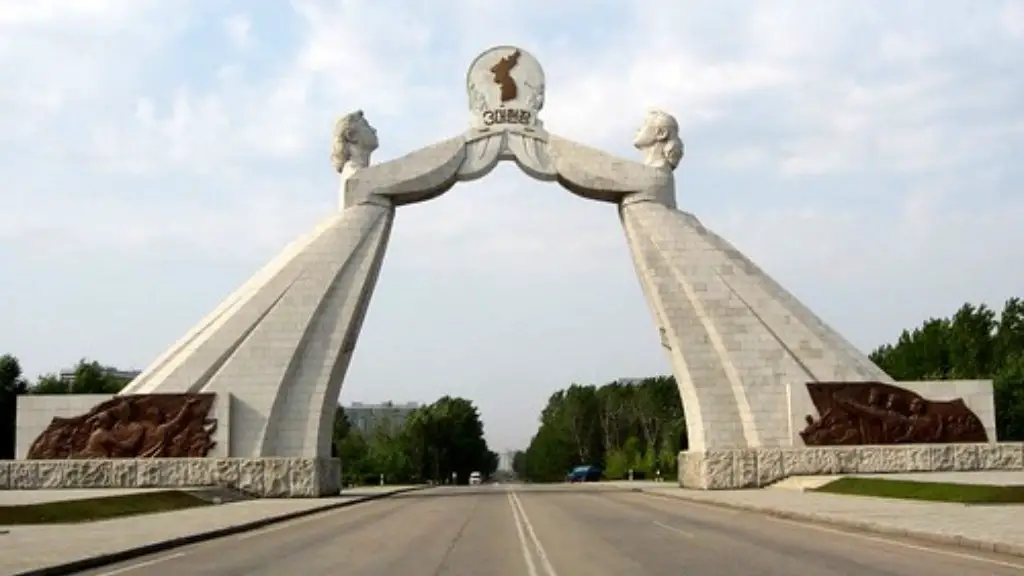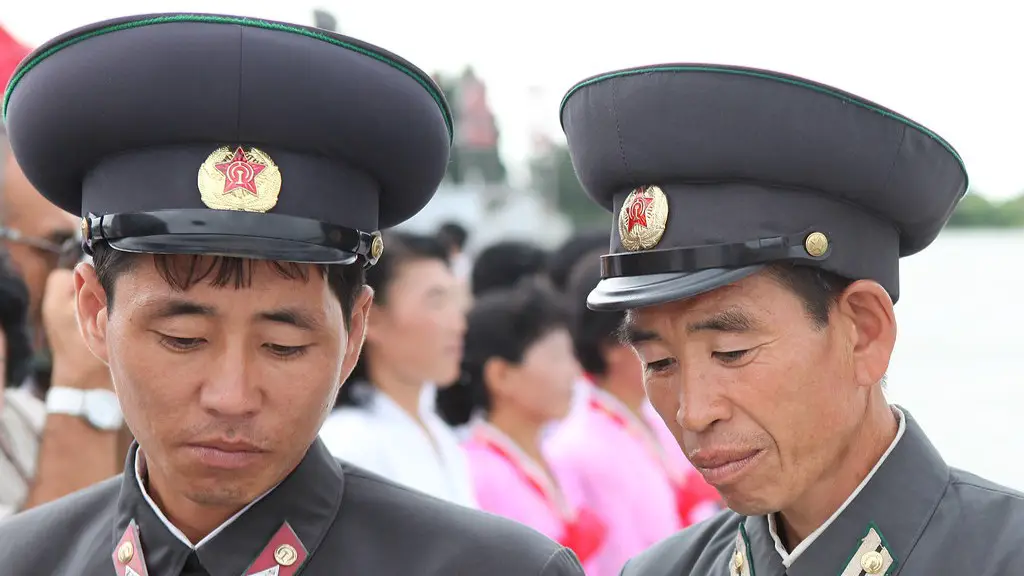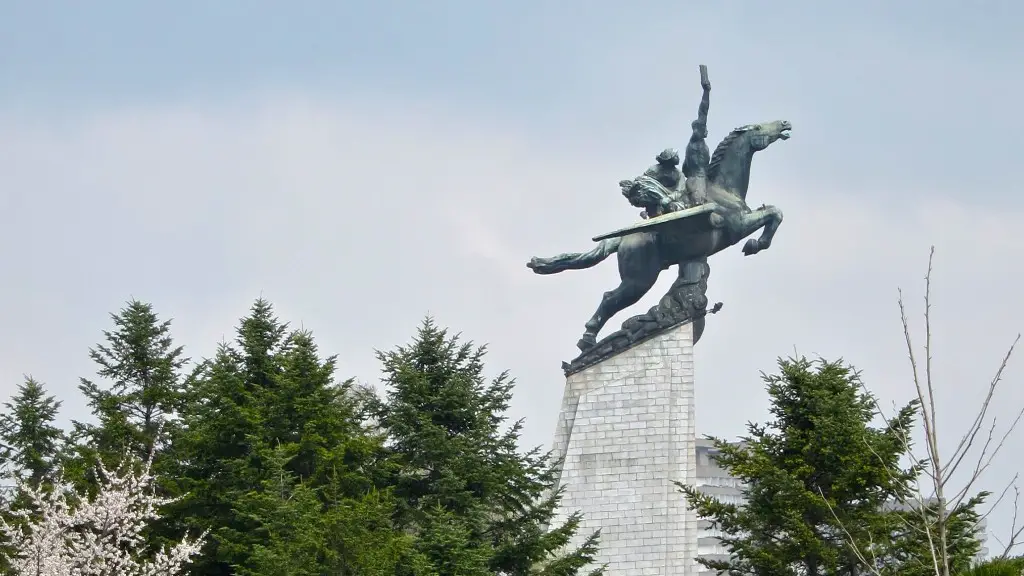Why do we consider nuking North Korea such a viable solution to the current stalemate? The stalemate, of course, being the almost two decades-old issue of North Korea’s pursuit of nuclear weapons, which has caused numerous international and domestic issues for both North Korea and its rivals. Nuking North Korea does appear to be a tempting solution, considering the apparent power of nuclear weapons and the potential for such an attack to put an end to the Kim dynasty. But is such a drastic and devastating action really the best solution?
Nuclear weapons are being considered because, in theory, they have the power to incapacitate North Korea’s nuclear arsenal and defences in a fraction of the time and resources a conventional military campaign would take. However, while nuking North Korea might achieve the desired end result, the short and long-term ramifications are incalculable. Aside from the obvious risk of wiping out million of innocent lives, it is also possible that other nations, particularly those who are already enemies of the United States, such as China and Russia, would retaliate with nuclear weapons of their own. In addition, radioactive fallout would almost certainly have devastating consequences, not just to the immediate area, but to other nations with which North Korea has diplomatic relations. This highlights the sheer folly of nuking North Korea – it is almost certain that the resulting chaos and destruction would far outweigh any benefit.
Rather than seeking a nuclear solution to the North Korean crisis, it might be more beneficial for the international community to focus on diplomatic solutions and negotiations. Unfortunately, it can be hard to find a common position between the two sides, especially when the North Korean government seems so entrenched in its hardline stance. Nevertheless, there has been some positive developments in recent years, such as the 2018 summit between North Korean leader Kim Jong Un and US President Donald Trump, which made history as the first meeting between a sitting American president and a North Korean leader. Although progress at this particular summit was minimal, the very fact that it took place at all could be seen as a sign that diplomatic avenues are possible.
Another option would be economic pressure, where the international community could use financial sanctions to force North Korea to reconsider its position. This includes the option of entirely cutting off North Korea’s access to the international banking system, which would not just have economic implications but would also put pressure on its political leadership. Indeed, this tactic has been used in the past, most notably in the case of Iran, when economic sanctions imposed by the United Nations caused the Iranian government to reconsider its stance on their nuclear programme.
Ultimately, nuking North Korea is an action that should only be considered as a last resort, when all diplomatic and economic avenues have been exhausted. Nuking North Korea is a reckless and potentially devastating course of action that could lead to unimaginable consequences, both immediate and long term. For this reason, it is important that the international community continues to explore diplomatic and economic solutions before resorting to drastic and dangerous measures.
Alternative Solutions
Despite the potential for grave consequence, some argue that the United States and other nations should look for alternative solutions to the North Korean crisis. One potential solution is a joint agreement between North Korea and the international community to freeze North Korea’s nuclear programme in exchange for security guarantees and economic aid. This could potentially prove to be an effective way to bring an end to the stalemate, as both sides could benefit from the agreement.
There is also the potential for a de-escalation of tensions between North Korea and its rivals. This could be achieved through increased dialogue between the two sides, and the creation of confidence building measures that could be used to decrease tensions and potentially reduce the risk of war. It should also be noted that many South Koreans remain optimistic that diplomacy can eventually lead to the reunification of the Korean peninsula.
Finally, it is important to note that while North Korea’s pursuit of nuclear weapons is a serious threat to global security, the international community should also focus on the root causes of the crisis, such as poverty and malnutrition in the country, which can be alleviated through the provision of economic aid. Additionally, there is a need to address the human rights abuses taking place in North Korea, which could be achieved in part through increased global pressure and diplomatic activism.
The Human Cost of War
However drastic and devastating the consequences of war might be if North Korea was to be nuked, it is ultimately the people who would suffer the most. Military action of any kind will always involve casualties, and if a nuclear attack were to occur, the casualty rate would be almost certain to be catastrophic. Furthermore, there will also be long-term effects in the form of diseases, such as cancer, caused by radioactive material.
It should also be remembered that war often creates instability and chaos, which can itself have devastating consequences. This is due to the fact that these conditions can create an environment in which criminal and terrorist organisations are able to flourish. This could potentially lead to an increase in violence and suffering, as well as further destabilising the already fragile situation in the Korean peninsula.
It is also important to consider the economic cost of war, which could have a significant negative impact on global economic markets and world stability. The result could be a significant drop in stock markets and other areas of the economy, as well as an increase in the price of commodities, such as food and fuel. This in turn could provoke an economic recession that could last for many years.
Finally, it is worth noting that military action could also have an impact on North Korea’s neighbours, particularly South Korea, which is South Korea within range of North Korean ballistic missiles. This could lead to significant destruction, as well as a mass exodus of North Korean refugees to South Korea, resulting in an unsustainable influx of people into an already overcrowded country.
Pros and Cons
When considering the potential for nuking North Korea, it is important to weigh the pros and cons of such a course of action. On one hand, a nuclear attack could potentially incapacitate North Korea’s nuclear arsenal and defences in a short space of time. Furthermore, it could also be seen as a means of putting an end to the tyranny of the Kim dynasty, which could potentially lead to the introduction of much needed reforms and the creation of more peaceful relations between North Korea and its neighbours.
On the other hand, nuking North Korea could have untold consequences, both immediate and long-term. These include the potential for other nations, such as China and Russia, to retaliate with nuclear weapons of their own, as well as the high risk of radioactive fallout that could affect neighbouring countries and potentially cause irreparable damage to the environment.
Additionally, there are serious moral and ethical implications to consider, as launching a nuclear strike against North Korea would almost certainly result in the death of millions of innocent people. This would be compounded by the fact that North Koreans, who have been subjected to the oppressive regime of the Kim dynasty for many years, would be the ones to feel the worst of the consequences.
Rethinking the Situation
Ultimately, while nuking North Korea may seem like a tempting solution to the current stalemate, it should only be considered as a last resort, when all other diplomatic and economic avenues have been exhausted. The risks of such a course of action far outweigh any potential benefits, so it is important that the international community focuses on other alternatives that could potentially bring about a peaceful resolution to the crisis.
At the same time, it is important to realise that the North Korean crisis is not just about nuclear weapons or even politics. It is also about the people of North Korea, who have suffered under the oppressive regime of the Kim dynasty for many years, and the possibility of a better future, free of the fear and suffering that has been inflicted upon them for so long.
Finally, it is essential that the international community opens its eyes to the true cost and consequences of war, as well as the human impact it could have on the people of North and South Korea, as well as the wider world. By doing so, we can begin to consider more effective and compassionate alternatives that could potentially lead to a lasting peace on the Korean peninsula.




